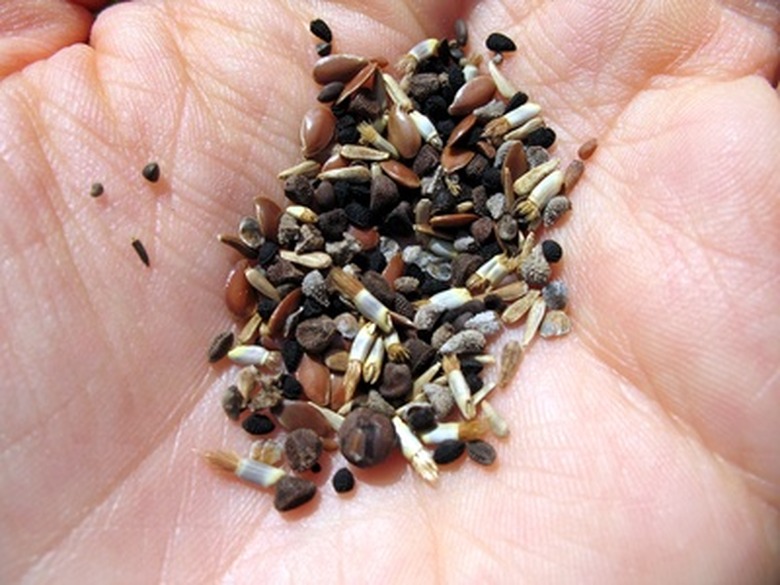Can You Grow Plants From Seeds That Have Been Frozen?
Plants often produce seeds at the wrong time for new plants to survive. They produce seeds in the summer and fall that survive the winter and grow into the new plants the following spring.
Plants often produce seeds at the wrong time for new plants to survive. They produce seeds in the summer and fall that survive the winter and grow into the new plants the following spring.
Stratification
Stratification of seeds, either natural or artificial, helps some seeds break dormancy. Seeds are kept moist and at temperatures below 40 degrees Fahrenheit for a specific length of time. Some seeds require temperatures below freezing in order to break dormancy and germinate.
Seed Banks
Seed banks store seeds in controlled environments with temperatures well below freezing. Seed banks preserve seeds in vaults in the event of global catastrophe and to preserve genetic diversity.
- Plants often produce seeds at the wrong time for new plants to survive.
Annuals
Annual plants die every winter and are unable to survive a cold winter. They produce seeds throughout the summer which survive temperatures far below freezing in order to germinate and grow into new plants the following summer.
Perennials
Perennials survive more than a single season, sometimes for many years. Their seeds are more likely to require stratification than annual seeds and some won't germinate until two or more winters have passed.
Frozen Seeds
Seeds that have been frozen will probably grow. It depends on the length of time they were frozen, how they were stored and what type of seed it is.
Pepper Plants Grow From Seeds?
Like people, seeds are most active in a certain temperature range. In warm areas, seeds should be sown outdoors when nighttime temperatures are regularly in the 60s Fahrenheit. Ghost pepper seeds, for instance, can take up to four months to sprout, and seeds of other members of the group commonly take up to one month before showing activity. Super hots also need a really warm temperature — 85 degrees Fahrenheit or higher — to sprout. Some seeds were just never destined to sprout. Stored in an air-tight container with a desiccant and placed in a refrigerator or freezer, pepper seeds can remain viable for up to 25 years, but seed vigor takes a nosedive after two to five years when stored under room-temperature conditions. Discard all the seeds that float.
- Annual plants die every winter and are unable to survive a cold winter.
- Their seeds are more likely to require stratification than annual seeds and some won't germinate until two or more winters have passed.
References
- "From Seed to Bloom"; Eileen Powell; 1995
- North Carolina State University: Overcoming Seed Dormancy
- The Farmer Fred Rant: Pepper Seeds Won't Germinate? Some Tips
- Texas Agricultural Extension Service, Horticulture Update: Soil Temperature
- Alabama Cooperative Extension System: Soil Temperature Conditions for Vegetable Seed Germination
- Cornell University: Growing Guide — Peppers
- University of Minnesota Extension: Saving Vegetable Seeds — Tomatoes, Peppers, Peas and Beans
- Redwood City Seed Co.: Pepper Growing Tips
- University of Minnesota Extension: Starting Seeds Indoors
